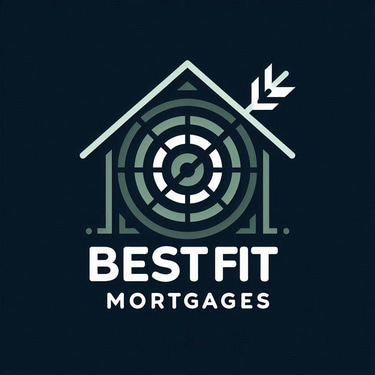Unlock Your Financing Potential—Compare Commercial Mortgages Instantly!
Commercial Mortgages
Looking to build wealth, own your workspace, or generate rental income? We can help.




What is a Commertial Mortgage?
A commercial mortgage is a loan used to purchase property for business purposes. Unlike a residential mortgage, it's designed for businesses looking to buy offices, shops, warehouses, or other commercial spaces. Essentially, it's a financial tool that helps businesses acquire property assets to support their operations.
What are the types of commercial mortgages?
Owner-occupier Mortgages:
Funding for businesses to acquire premises for their own use and operations.
Investment Mortgages:
Capital for purchasing commercial real estate with the intent to lease and generate rental income.
Unlike traditional residential investment properties, investment property financing typically focuses on: Hospitality venues (e.g., pubs, restaurants); Office spaces; Industrial yards; Auxiliary structures.
The investment variant allows property holders to build a commercial real estate portfolio, much like residential landlords, but with a focus on business-oriented properties.
What is the minimum trading history typically required for a business to qualify for a commercial mortgage?
Typically, a business needs at least two years of trading history to qualify for a commercial mortgage. This requirement allows lenders to assess the stability and financial performance of the business over time. A longer trading history can potentially improve the chances of approval and may lead to more favorable terms, as it demonstrates the business's ability to sustain operations and manage finances over an extended period.
What factors do lenders assess when considering a commercial mortgage application for a trading business?
Lenders assess several key factors when considering a commercial mortgage application. These include the company's accounts, which provide insight into the financial health of the business; profitability, which indicates the business's ability to generate income; and the ability to service the debt, which shows whether the business can make regular mortgage payments. Additionally, lenders may consider the business's credit history, current market conditions, and the specific industry in which the business operates.
What is the minimum trading history typically required for a business to qualify for a commercial mortgage?
Typically, a business needs at least two years of trading history to qualify for a commercial mortgage. This requirement allows lenders to assess the stability and financial performance of the business over time. A longer trading history can potentially improve the chances of approval and may lead to more favorable terms, as it demonstrates the business's ability to sustain operations and manage finances over an extended period.
What factors do lenders assess when considering a commercial mortgage application for a trading business?
Lenders assess several key factors when considering a commercial mortgage application. These include the company's accounts, which provide insight into the financial health of the business; profitability, which indicates the business's ability to generate income; and the ability to service the debt, which shows whether the business can make regular mortgage payments. Additionally, lenders may consider the business's credit history, current market conditions, and the specific industry in which the business operates.
What is the typical deposit required for a commercial mortgage for a trading business?
A deposit of usually 25-35% is required for a commercial mortgage for a trading business. This substantial deposit helps to reduce the lender's risk and demonstrates the business's commitment to the investment. The exact percentage may vary depending on factors such as the business's financial strength, the property's value, and the lender's policies. In some cases, a larger deposit might lead to more favorable interest rates or terms.
How is a commercial mortgage for a trading business typically secured?
A commercial mortgage for a trading business is often secured against both the business and the property. This dual security arrangement provides additional protection for the lender. By securing the loan against the property, the lender has a tangible asset to claim if the loan defaults. Securing it against the business itself may include claims on business assets, cash flow, or other business-related collateral, providing a more comprehensive security package for the lender.
What types of repayment options are available for commercial mortgages for trading businesses?
Commercial mortgages for trading businesses typically offer a range of repayment options to suit different financial situations. Capital repayment options are common, where both the principal and interest are paid off over the loan term. Various fixed and variable interest rates are available, allowing businesses to choose between predictable payments or potentially lower rates that fluctuate with the market. Some lenders may offer interest-only options, where only the interest is paid for a set period, or combination options that blend different repayment structures to meet specific business needs.
How do commercial mortgages for investment differ from those for trading businesses?
Commercial investment mortgages differ from trading business mortgages primarily in their purpose and assessment criteria. While trading business mortgages are for companies to purchase premises they'll operate from, investment mortgages are for buying property to generate rental income. The key difference lies in how lenders assess the application. For investment mortgages, the focus is on the property's potential rental income rather than the borrower's business profitability. Lenders typically look at the projected rental yield and compare it to the mortgage payments to ensure the investment is viable.
What loan-to-value (LTV) ratio is common for commercial investment mortgages?
Commercial investment mortgages usually have a maximum loan-to-value (LTV) ratio of around 75%. This means lenders will typically offer up to 75% of the property's value, requiring the borrower to provide a 25% deposit. However, the exact LTV can vary depending on factors such as the property type, location, and the borrower's experience. Some lenders might offer higher LTVs for particularly strong applications or lower ones for riskier investments. It's worth noting that a lower LTV (i.e., a larger deposit) often results in more favorable interest rates.
Can individuals apply for commercial investment mortgages, or are they only for companies?
Both individuals and companies can apply for commercial investment mortgages. The choice between applying as an individual or through a company depends on various factors, including tax implications, personal financial situation, and long-term investment strategy. Many investors choose to set up a Special Purpose Vehicle (SPV) - a limited company specifically for holding property investments - due to potential tax advantages. However, the eligibility criteria and terms may differ between individual and company applications, so it's advisable to consult with a financial advisor or mortgage broker to determine the best approach for your specific circumstances.
What types of properties can be financed with a commercial investment mortgage?
Commercial investment mortgages can be used to finance a wide range of property types. These typically include: Office buildings; Retail spaces (shops, shopping centers); Industrial units and warehouses; Hotels and guesthouses; Restaurants and pubs; Mixed-use properties (e.g., retail space with residential apartments above); Purpose-built student accommodation; Care homes; Land for commercial development.
The exact types of properties a lender will finance can vary, with some specializing in certain sectors. The property type can also influence the terms of the mortgage, including interest rates and loan-to-value ratios.
How does the interest-only option work for commercial investment mortgages?
Interest-only options are common in commercial investment mortgages. With this structure, the borrower only pays the interest on the loan for a set period. At the end of the interest-only period (or the full term), the original loan amount (principal) becomes due. This option can be attractive for investors as it keeps monthly payments lower, potentially improving cash flow. However, it requires a solid exit strategy, such as selling the property or refinancing, to repay the principal at the end of the term. Some lenders offer hybrid options, where a portion of the loan is on an interest-only basis while the rest is on a repayment basis.
How does the experience of the borrower influence a commercial investment mortgage application?
The experience of the borrower plays a significant role in commercial investment mortgage applications. While anyone can technically apply, lenders often prefer borrowers with experience in property investment, particularly in the commercial sector. Experienced investors are generally seen as lower risk because:
They understand the market dynamics and potential pitfalls.
They likely have a track record of successful property management.
They may have existing relationships with lenders.
For first-time commercial property investors, lenders might:
Require a larger deposit
Offer less favorable interest rates
Have stricter criteria for the types of properties they'll finance
However, if a first-time commercial investor has significant experience with residential buy-to-let properties, this can work in their favor. Some lenders may also consider the borrower's business experience or their plan to work with experienced property management companies when assessing the application.
Ready to take the next step?
Business Loans
Ready to invest in property? Discover how buy-to-let mortgages can help you achieve your goals.




What are business loans, and how can they benefit business owners?
Business loans are financial instruments provided by various lending institutions, including banks, credit unions, and alternative lenders, designed to support business owners in their entrepreneurial endeavors. These loans serve as a crucial source of capital for businesses at various stages of development, from startups to established enterprises looking to expand.
Business loans generally fall into two main categories:
Secured business loans: These require the borrower to provide collateral, typically in the form of business assets such as property, equipment, or inventory. The collateral serves as a guarantee for the lender, potentially resulting in more favorable terms and lower interest rates. However, it also means the business owner risks losing the pledged assets if unable to repay the loan.
Unsecured business loans: These do not require collateral, making them less risky for the borrower but potentially more expensive due to higher interest rates. Lenders often base their decision on the business's creditworthiness and financial performance.
Business owners can utilize these loans for a wide array of purposes - starting a new business venture; expanding operations or opening new locations; purchasing equipment or inventory; hiring and training new employees; managing cash flow during seasonal fluctuations or unexpected events; refinancing existing debt.
One of the primary advantages of business loans is their ability to provide quick access to funds, enabling business owners to capitalize on opportunities or address immediate financial needs without depleting their cash reserves. This financial flexibility can be crucial for maintaining operations, pursuing growth strategies, or navigating challenging economic conditions.
Before applying for a business loan, it's essential for owners to thoroughly understand the differences between secured and unsecured loans, as well as the various loan products available in the market. They should carefully consider factors such as interest rates, repayment terms, fees, and any potential impact on their business's financial health and credit rating.
Ultimately, the purpose of business loans is to provide necessary funding while helping to manage the inherent financial risks associated with borrowing money. When used strategically, these loans can be powerful tools for driving business growth, innovation, and long-term success.
What are the key differences between a business loan and a personal loan?
Intended use: Business loans are specifically for business expenses, while personal loans are for individual use.
Security Requirements: Business loans can be secured or unsecured, while personal loans are typically unsecured.
Repayment Duration: Business loans generally have longer repayment terms compared to personal loans.
Payment Structure: Business loan repayments tend to be consistent, whereas personal loan repayments often increase over time.
Cost of Borrowing: Business loans usually offer lower interest rates than personal loans.
What are the steps to securing a business loan?
Craft a comprehensive strategy: Outline how you'll utilize the funds, whether for operational expansion or asset acquisition.
Demonstrate fiscal responsibility: Present financial records, including bank statements, credit histories, and tax filings, to showcase your repayment capacity.
Research financing options: Explore various lenders and rates to find the most suitable terms for your business needs.
By following this approach, enterprises can enhance their chances of obtaining the necessary funding to thrive.
What Financing Options Are Available for Businesses?
Small Business Loans
Small business loans provide essential funding for growth and expansion. Offering more flexible terms and potentially lower rates than traditional loans, they can help businesses access capital to seize opportunities. Careful planning and understanding loan terms are crucial for success.
Startup Loans
Startup loans offer financial support to new businesses. Designed for early-stage companies, these loans provide the capital needed to launch and grow. Entrepreneurs should carefully evaluate options and build a strong financial foundation.
Short-Term Loans
Short-term loans deliver quick access to funds for immediate business needs. Ideal for covering unexpected expenses or seizing time-sensitive opportunities, these loans offer a flexible financing solution.
Long-Term Business Loans
Long-term loans provide substantial funds for business growth. Unlike short-term options, these loans offer larger amounts, lower interest rates, and flexible repayment plans. Often secured by assets, they're ideal for major investments like property, equipment, or expansion.
Secured Business Loans
Secured business loans offer larger amounts of capital in exchange for business assets. By pledging property, equipment, or other valuable items as collateral, businesses can often secure lower interest rates and longer repayment terms. While this option provides access to significant funds, it's crucial to ensure consistent repayments to avoid potential asset loss. Careful consideration of the loan terms and the ability to meet obligations is essential before committing.
Unsecured Business Loans
Unsecured business loans offer flexible funding without requiring collateral. Ideal for businesses without substantial assets, these loans provide capital for growth, expansion, and operational costs. Strong financial management and a good credit score are crucial for approval.
Government Business Loans
Government business loans offer financial support to businesses. These loans often provide lower interest rates and flexible repayment terms compared to traditional financing. To qualify, businesses typically need a solid business plan and meet specific financial criteria. Funds can be used for expansion, equipment, hiring, and marketing. Additionally, government may offer grants, tax incentives, or business support services to help businesses succeed.
Personal Business Loans
Personal business loans offer funding for startups and business growth. Requiring good credit, these loans provide flexible options for various business needs, including working capital, equipment, and debt refinancing.
Let's discuss your options.
Quick Development Finance Solutions – Quote Ready in 60 Seconds.
Development Finance
Explore how a development loan can supercharge your project.




What is development finance and what is it used for?
Development finance refers to loans and grants used to fund property development projects such as new build constructions, property conversions, and infrastructure improvements. It's used to support projects that create meaningful change for local communities, stimulate economic growth, and improve living standards.
Who offers development finance?
Development finance is offered by various sources, including:
Government programs (e.g., The Levelling Up Homebuilders Fund)
High-street banks
Specialist lenders
Private investors and businesses
How does development finance work for private property investors?
For private property investors, development finance typically works as follows:
The project details are assessed, including acquisition costs, building plans, and projected Gross Development Value (GDV).
Funding is released in stages as the development progresses, rather than all at once.
The loan is usually short-term, covering just the building phase.
The loan is typically repaid by selling the property or refinancing to a longer-term mortgage upon completion.
What are the benefits of development finance?
Key benefits of development finance include:
Provides easy access to funds for land purchase and project completion
Staged release of funds helps with cash flow management
More flexible approach compared to traditional borrowing
Can be tailored to individual project needs
Allows developers to take on larger projects without overstretching their budget
How does development finance differ from other investment finance products?
Development finance differs from other products like buy-to-let mortgages or standard bridge loans in several ways:
It's specifically designed for projects involving significant construction or renovation
It's typically used for projects that require planning permission or where the property won't remain watertight during development
It's more suitable for building from the ground up or major renovations
It's usually more complex but can be more appropriate for large-scale developments
What is the role of a mortgage broker in securing development finance?
A mortgage broker, such as Best Fit Mortgages, plays several important roles in securing development finance:
They help identify appropriate lenders for specific projects
They negotiate ideal rates for development projects
They ensure all paperwork is completed promptly
They provide advice on getting suitable deals from lenders
They offer support throughout the entire process
They can help save time and money in sourcing development finance
They have expertise in understanding the complexities of funding for property developers
What is a 'Gross Development Value' (GDV) and why is it important?
Gross Development Value (GDV) is the projected market value of a completed property development. It's important because:
Lenders use it to assess the potential profitability of a project
It helps determine the amount of funding a lender might offer
It's used in calculating loan-to-value ratios and other lending metrics
It's a key factor in assessing the overall viability of a development project
How does the 'exiting' process work in development finance?
The 'exiting' process in development finance refers to how the loan is repaid upon project completion. This typically happens in one of two ways:
Sale of the property: The developed property is sold, and the proceeds are used to repay the loan.
Refinancing: The short-term development loan is replaced with a longer-term mortgage.Additionally, if a developer wants to access the equity created but still plans to sell the property, they might use a development exit bridge loan.
What factors do lenders consider when assessing a development finance application?
Lenders consider several factors when assessing a development finance application:
The full details of the project, including acquisition costs and building plans
The developer's experience and track record
The projected Gross Development Value (GDV)
Planning permissions and regulatory compliance
The developer's financial situation and ability to make any required initial investment
The viability and profitability of the project
Any potential risks associated with the development
Want to discuss your project in more detail?
BEST FIT MORTGAGES LTD
T: 01744411604
E: contact@bestfitmortgages.co.uk
Your property may be repossessed if you do not keep up repayments on your mortgage or loans secured on it.
Best Fit Mortgages LTD Registered office address: 60 Chiltern Road, St. Helens, England, WA9 2HT. Registered in England and Wales No: 15722235
Making a complaint: It is our intention to provide you with a high level of customer service at all times. If there is an occasion when we do not meet these standards and you wish to register a complaint, please write to: Compliance Department; Connect IFA Ltd, 39 Station Lane, Hornchurch, RM12 6JL or call: 01708 676110. If you cannot settle your complaint with us, you may be entitled to refer it to the Financial Ombudsman Service www.financial-ombudsman.org.uk
Best Fit Mortgages LTD is an Appointed Representative of Connect IFA Limited 441505 which is Authorised and Regulated by the Financial Conduct Authority and is entered on the Financial Services Register under reference 1017669. The FCA do not regulate some forms of Business Buy to Let Mortgages and Commercial Mortgages to Limited Companies. A fee will be payable for arranging your mortgage. Your consultant will confirm the amount before you choose to proceed, but this is typically 0.5% of the mortgage balance, e.g. £500 for a mortgage of £100000. The guidance and/or advice contained within this website is subject to the UK regulatory regime and is therefore primarily targeted at consumers based in the UK.
© 2024. All rights reserved.
Commission disclosure: We are a credit broker and not a lender. We have access to an extensive range of lenders. Once we have assessed your needs, we will recommend a lender(s) that provides suitable products to meet your personal circumstances and requirements, though you are not obliged to take our advice or recommendation. Whichever lender we introduce you to, we will typically receive commission from them after completion of the transaction. The amount of commission we receive will normally be a fixed percentage of the amount you borrow from the lender. Commission paid to us may vary in amount depending on the lender and product. The lenders we work with pay commission at different rates. However, the amount of commission that we receive from a lender does not have an effect on the amount that you pay to that lender under your credit agreement.
Not all services we offer are covered by the FCA.


